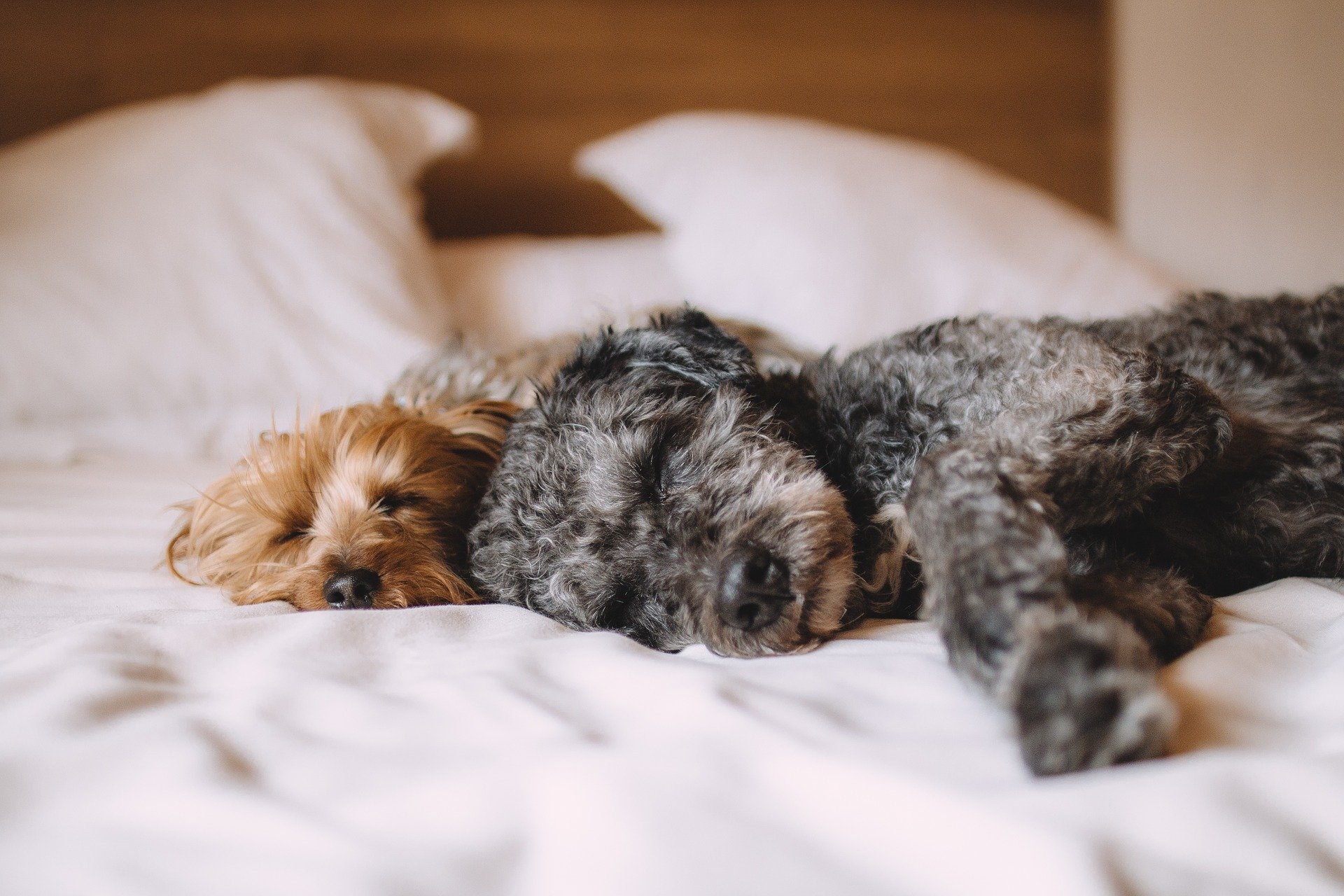Socialization is the process of introducing your pet to new people, places, scents, sounds, and animals. If you do it properly, especially as a puppy, you will significantly decrease the chances of your dog becoming fearful, reactive, or aggressive toward unfamiliar circumstances. Good socialization will teach your dog to approach new experiences with excitement and curiosity and decrease their stress during these situations. Some of the most important dog training tips we can provide involve this important learning tool.
The most critical period for socializing a puppy starts when you are able to adopt them (around 8 weeks) until they are about 20 weeks old. The younger you can begin socialization, the better your dog will learn important social skills before they can develop suspicion or fear of other dogs, people, and animals.
Socialization Tips
Change Up Your Daily Walks: If you take the same path every day, your dog will get accustomed to the scents, sounds, and people you meet. Varying your walk makes life more interesting for you both, and will introduce your dog to new stimuli. Since most dogs love to go on walks, this is a great time to experience new things, because your pup is already excited and happy!
Get Them Used to Handling: This will make trips to the vet infinitely easier. Cuddle, pet, and rub your dog frequently to get them used to being touched. It also helps to regularly hold your dog’s paws–this teaches them not to be as afraid when you or the vet attempt to cut their nails.
Discourage Resource Guarding: Approach and interact with your dog while they eat. Many dogs can resource guard and become aggressive whenever someone approaches them when they eat because they see it as an attempt to take their food. By touching and sitting by your dog while they eat, they’ll learn not to see the presence of another person or animal as a threat.
Don’t Forget Sounds: Especially with young puppies, it is helpful to expose them to a multitude of indoor and outdoor sounds. Kitchen noises, engine revs, thunder, and crying are just some of the sounds you should expose your dog to. While experiencing the nosies, play with your dog and feed them treats to form positive associations with the sounds.
Arrange Playdates: This is an excellent way to let your pup meet new dogs in a controlled way. While walks are great, you do not have full control of the situation, such as the environment or the number of dogs you encounter. Be cautious and always have control of the situation so that you can remove your dog if they get overwhelmed or aggressive. The dog park is generally not a good place to socialize your dog, since the dogs are off-leash and not easily intercepted or controlled. With arranged playdates you can introduce your pet to dogs of different ages, sizes, and energy levels while feeling comfortable that you are in control of the situation. Plus, you get some nice hangout time with a fellow dog-parent.
Treats and Rewards:These are important for any training endeavor. Most dogs are very food-motivated, and will quickly learn that experiences that result in treats are pleasurable and good!
Even if you adopt your dog after the critical socialization period, you can still use these dog training tips to work on their social skills. Continue to introduce your dog to new people and dogs, and you are sure to make some progress!





